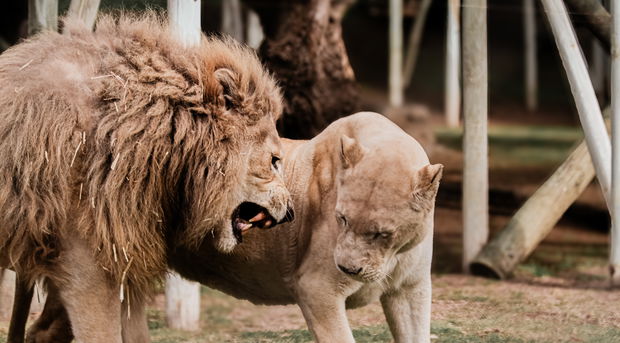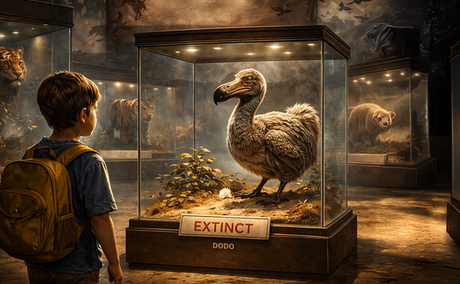For a conservation organisation based in Oudtshoorn, moments like this do not come often. And when they do, they are worth pausing for. This year, a South African conservation technology project founded by our CEO, Douglas Eriksen, was recognised on the global stage at the World Economic Forum in Davos. Project ZOA, or Zoological Open Architecture, was awarded the Startup Innovation Award for Top AI Sustainability Project during Davos Innovation Week 2026.
World Lion Day

Lions are among Africa’s most iconic predators, yet their future is far from secure. These social cats live in prides that work together to hunt, defend territory, and raise their young. In the wild, they play a vital role in keeping ecosystems balanced by controlling herbivore populations, which allows vegetation to recover and supports many other species. Over the past century, lions have lost more than 90 percent of their historic range. Today, an estimated 20 000 to 25 000 remain in the wild in Africa, with about 670 Asiatic Lions surviving in India’s Gir Forest. Their numbers continue to decline due to habitat loss, human-wildlife conflict, and illegal hunting.
World Lion Day, marked on 10 August, is a reminder that these animals need protection. By supporting conservation efforts that safeguard wild species and wild environments, you help ensure that future generations will still hear the powerful sound of a lion’s roar. Tribe and Sindile, our much-loved lions, are more than impressive animals to admire. They are ambassadors for their species, helping us educate over 100 000 visitors each year. For many, especially the countless schoolchildren who visit, it is their very first time seeing a lion. We believe that such moments are invaluable - igniting lifelong respect for the animals and a deeper desire to protect them.
Did you know?
A lion’s roar can be heard up to 8 kilometres away, and a pride’s roar chorus at dawn or dusk can make it sound like there are more lions than there really are, helping to deter rivals.
A male’s mane not only protects his neck during fights, but its size and colour can signal his health and strength to other lions.
Female lions do most of the hunting, but males defend the pride’s territory from intruders.
Lions can sleep for 16 to 20 hours a day to conserve energy for hunting and patrolling.
Cubs are born with spots on their fur, which fade as they grow older.
Lions once roamed across Africa, Europe, the Middle East, Asia, and the Americas; today they occupy less than 10 percent of that historic range.
In the wild, lions usually live for 10 to 14 years, but in protected environments they can live into their twenties. Tribe and Sindile are thriving at the impressive age of 19.
Further Reading
The Dodo once walked freely on the island of Mauritius. With no natural predators, it had no reason to fear humans. Within less than a century of human arrival, it was gone. Extinction is permanent. Once a species disappears, there is no recovery, no second chance, no future generations to protect. Every species on the Red List tells a story of pressure. Habitat loss. Human conflict. Climate stress. Decline that did not...
Some partnerships are built quietly and strengthened over time through consistency and shared purpose. Since 2018, Kraaibosch Nurseries in George has supported Cango Wildlife and the Cheetah Preservation Foundation as a benefactor. Their ongoing contributions help sustain the day to day work of conservation, from animal care and veterinary treatment to habitat management and long term programmes focused on threatened species, including cheetahs and other vulnerable wildlife in our care.















Share This Post